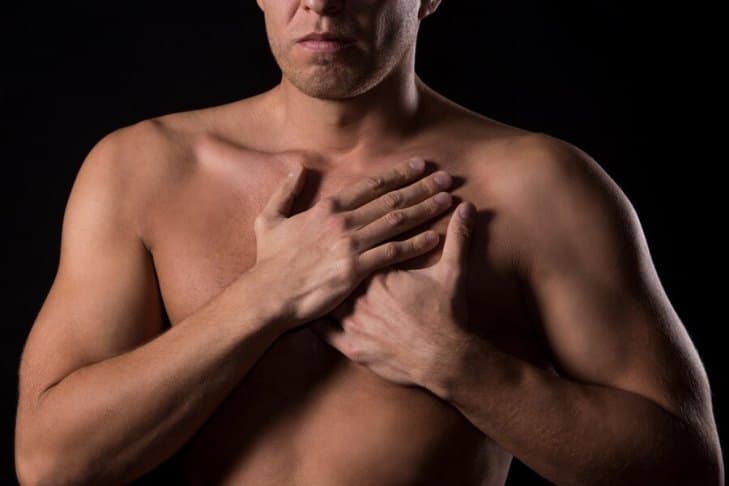Have you ever experienced a popping sensation in your chest when you take a deep breath? It can be a bit unsettling, leaving you wondering about the reasons behind this peculiar occurrence.
Understanding the anatomy of the chest and the role of various components can help shed light on why you might experience a popping sensation when you breathe deeply. Let’s delve deeper into this topic to gain a comprehensive understanding.
Anatomy of the Chest
The chest comprises a complex structure consisting of bones, joints, muscles, and organs. The ribcage, sternum, and thoracic vertebrae form the primary framework of the chest, providing protection to the vital organs within.
Additionally, these bony structures house various joints that facilitate movement during breathing.
Normal Mechanisms of Chest Movement
Breathing involves a coordinated effort of the respiratory muscles, primarily the diaphragm and the intercostal muscles between the ribs. As you inhale, the diaphragm contracts, pulling downward and expanding the chest cavity.
The intercostal muscles elevate the ribcage, further expanding the chest volume. During normal breathing, it is not uncommon to hear slight sounds associated with the movement of air through the airways.
Causes of Chest Popping when Breathing
There can be several reasons behind the popping sensation experienced in the chest while breathing deeply. Let’s explore some of the common causes:
Air Trapped in Joints
One possible explanation for chest popping is the presence of trapped air within the joints of the chest. These joints, including the sternoclavicular and costochondral joints, can sometimes become momentarily misaligned, allowing a small amount of air to enter. When you take a deep breath, the sudden movement of the joint can release this trapped air, resulting in a popping sensation.
Factors such as poor posture, abrupt movements, or repetitive strain can contribute to the likelihood of air getting trapped within these joints.
Costochondritis
Costochondritis refers to the inflammation of the cartilage that connects the ribs to the sternum. This condition can cause localized chest pain, tenderness, and a popping sensation when breathing deeply. It may be triggered by injury, repetitive movements, or viral infections.
Individuals who engage in activities involving repetitive arm movements, such as weightlifting or playing certain sports, are at a higher risk of developing costochondritis.
Precordial Catch Syndrome
Precordial Catch Syndrome, also known as Texidor’s twinge, is a benign and relatively common condition characterized by sharp chest pain and a popping sensation. This syndrome typically occurs during adolescence and can be triggered by certain movements or breathing deeply.
While the exact cause of Precordial Catch Syndrome remains unclear, it is believed to result from irritation of the nerves in the chest wall.
Sternoclavicular Joint Dysfunction
The sternoclavicular joint connects the collarbone to the sternum and allows for shoulder movements. Dysfunction in this joint can lead to discomfort, pain, and a popping sensation in the chest area. Poor posture, trauma, or inflammatory conditions can contribute to sternoclavicular joint dysfunction.
When to Seek Medical Attention For Chest Popping
Although chest popping is often harmless, there are situations where it is advisable to seek medical attention:
Persistent or Severe Symptoms
If the popping sensation in your chest is persistent, accompanied by severe pain, or is affecting your daily life, it is important to consult a healthcare professional. They can evaluate your symptoms, perform necessary investigations, and provide appropriate guidance.
Impact on Daily Life
If the chest popping sensation interferes with your ability to perform daily activities or causes distress, it is recommended to seek medical advice. While most cases are benign, it is crucial to rule out underlying conditions that may require treatment.
Preventing Chest Popping
While chest popping can be bothersome, there are steps you can take to manage and prevent it:
Breathing Techniques
Practicing deep breathing exercises, such as diaphragmatic breathing, can help regulate your breathing patterns and reduce the occurrence of chest popping.
By consciously focusing on slow and controlled breaths, you can minimize unnecessary strain on the chest joints.
Posture and Ergonomics
Maintaining good posture is essential for overall musculoskeletal health. By adopting proper posture and ensuring ergonomic setups at work or during activities, you can reduce strain on the chest joints and minimize the risk of popping sensations.
Lifestyle Changes
Incorporating regular exercise, stretching, and maintaining a healthy weight can contribute to the overall well-being of your chest and joints. Engaging in activities that promote muscle strength and flexibility can enhance the stability and function of the chest area.
Conclusion
Experiencing a popping sensation in your chest when you breathe deeply can be disconcerting. However, in most cases, it is not a cause for alarm. Understanding the potential causes can help alleviate concerns.
If the symptoms persist or significantly impact your daily life, it is advisable to consult a healthcare professional. By practicing breathing techniques, maintaining good posture, and making certain lifestyle changes, you can effectively manage and prevent chest popping, ensuring a more comfortable and enjoyable breathing.
